#FiatChryslerAutomobiles
Incredibly Shrinking Fiat 500 Finally Dropped in North America
The model that helped relaunch a long-departed brand — a brand which subsequently failed to clear the tower — is effectively dead in North America. Fiat Chrysler has taken the retro-themed, pint-sized Fiat 500 off life support, removing it from the brand’s North American offerings for 2020.
The newly turbocharged 500, its beefier Abarth brother, and the eco-warrior 500e electric, were victims of America’s unrelenting desire for large, spacious automobiles. The illness took hold almost as soon as the 500 arrived.
As It Plots a Modest Path Forward, Fiat Thinks Small
Fiat, the ancient automotive brand found at the top of very few American shopping lists, finds itself in the midst of a transformation. On its European home turf, emissions rules have grown ever more strict; meanwhile, many buyers are gravitating towards the type of vehicles offered by corporate sibling Jeep, and Fiat Chrysler would prefer they purchase the seven-slot brand. That leaves Fiat with a mandate to think small.
As details emerge from the latest meeting of Fiat brass, it looks like the brand’s future holds efficiency but precious little flash.
Beleaguered Minivan Plant Granted a Reprieve
Home to the Dodge Grand Caravan, Chrysler Pacifica, and now the lower-tier Chrysler Voyager, Fiat Chrysler’s Windsor Assembly won’t see an expected shift cut next month. Instead, thanks to an uptick in volume, company brass has decided to ride out the year.
Originally scheduled to shed a shift (and along with it, about 1,500 jobs) at the end of September, Windsor Assembly will continue with its current workforce until at least New Year’s, Driving reports.
Denied a Horsepower Hike for 2019, Dodge Grants the Charger a 2020 Bump
Dodge’s Charger and Challenger are rolling anachronisms we’ll miss after they’re gone. For now, the two full-size rear-drivers soldier on into the future atop their ancient underpinnings, with Fiat Chrysler bestowing an ever-growing list of variants upon still-interested buyers.
The latest corrects what some Mopar fans may have viewed as an oversight. Last year, following the release of the long-teased Challenger SRT Demon, Dodge pushed the Challenger SRT Hellcat’s supercharged 6.2-liter up to 717 horses, giving would-be buyers 10 more reasons to desire the model. A Redeye version delivered 797 hp, a downgrade (if it can really be called that) from the limited-edition Demon’s 840 hp.
Meanwhile, the Charger was left to “suffer” with only 707 hp. Not anymore.
Fiat Chrysler Unveils 'Death Wobble' Fix, Lawsuit Plaintiffs Likely Not Satisfied
Reports of alarming oscillations transmitted through the steering wheels of various Jeep Wranglers started landing on the NHTSA’s lap last year, years after off-road enthusiasts began complaining of the same issue. A product of a solid front axle, higher speeds, and an unexpected jolt — like hitting a bump in the road — the so-called “death wobble” sparked a class-action lawsuit that alleges Jeep’s Wrangler boasts an inherently unsafe axle and suspension design.
Now Fiat Chrysler says it has a solution to the wobble, with notifications headed to owners’ mailboxes from coast to coast. Will the supposed fix serve to pour cold water over the lawsuit? At this point, it doesn’t seem so.
Buying Credit: FCA Says It Won't Need to Pay EU's CO2 Fines
Fiat Chrysler Automobiles CEO Mike Manley said the automaker will not have to pay fines for failing to meet the demands of tightening European air quality regulations. But that’s not because the automaker is actually going to adhere to them. FCA has been pretty open in explaining its willingness to simply endure fines or, conversely, buy enough carbon credits to circumvent the issue entirely. And, over the next two years, the latter strategy will be how it copes with the EU’s pollution mandates.
It’s not ignoring efficiency, however. FCA still plans on releasing an improved Fiat 500 BEV while expanding its hybrid offerings via the Jeep brand this year. It’s just easier (and cheaper) to buy credits in advance, knowing the manufacturer will need them.
2020 Chrysler Voyager's Price Undercuts Today's Pacifica, but Only Just
It’ll be a different story when the 2020 model year arrives at Chrysler, at which point a large pricing gap will open up between the brand’s Pacifica minivan and the newly-arrived Voyager. The Voyager name, as you may recall, has been dusted off in order to serve as a stepping stone to the Pacifica.
It’s the same vehicle, to be sure, but one which replaces the former Pacifica L and LX at the bottom of the minivan totem pole. Here’s how the pricing breaks down between the two family-friendly siblings.
There's More Than One Name in This Little Black Book, Manley Tells Renault
Maybe that’s a dated reference in this age of smartphones and hookup romance apps. Regardless, the list of potential partners for a prowling Fiat Chrysler doesn’t begin and end with Renault-Nissan-Mitsubishi.
Oh sure, it wouldn’t mind getting down to business with the French-Japanese auto giant, but there’s plenty of fish in the sea. FCA knows it’s a catch, and wants to put Renault on notice that it has plenty of choice in who it goes home with.
Classic-er: With No Midsize in Sight, Ram's 1500 Holdover Stands to Live On
For those of you who value, um, value in your pickup purchase, there’s good news. Ram’s 1500 Classic, the name given to the previous-generation half-ton that soldiers on alongside the new-for-2019 1500, shows no signs of impending death.
Fiat Chrysler CEO Mike Manley made that point abundantly clear during an earnings call last week. Debuting for the 2009 model year, the Classic earns its moniker, yet the advancements and refinements showered on its successor hasn’t diminished demand for the old model — the new-gen 1500’s higher price point assures FCA of a steady stream of buyers.
Amazingly, a refresh may be in the works.
Crawling Back? Renault Still Eager to Merge With Fiat Chrysler, Report Claims
The proposed merger between two auto giants — Renault-Nissan-Mitsubishi and Fiat Chrysler Automobiles — went nowhere earlier this year, but the door to the deal never swung fully shut. That’s according to a report in the Wall Street Journal, in which sources claim talks are ongoing to rekindle the romance.
FCA snatched away its offer in June after the French government, which owns 15 percent of Renault, intruded into discussions, citing a need to have alliance partner Nissan fully on board. The Japanese automaker, embroiled in scandal and a serious financial slump, kept its distance from those earlier talks, offering polite but unenthusiastic public support as reports emerged of concerns about its autonomy and shrinking influence under such a marriage.
To get the deal back on track, Renault would need to loosen its ties with Nissan.
Opulence and Automakers: With Sentencing Looming, Former UAW Veep's Lawyer Tries the Titanic Defense
Ahead of an August 5th sentencing date, federal prosecutors hoping make an example of former UAW vice-president Norwood Jewell (seen above, on the left) rolled out a raft of visual evidence to back up their case for a jail term.
Jewell was not the “Miller Lite kind of guy” his legal defense wished to portray; rather, the former head of UAW’s Fiat Chrysler division made gluttonous use of FCA funds earmarked for the two groups’ joint training center, prosecutors argued. Jewell was all too happy to accept the financial grease FCA poured on its labor wheels, they added. He wanted to be a “big shot,” and FCA made sure he lived the life of a touring rapper.
FCA Putting $788 Million Behind New 500 EV, Small Battery Platform
Fiat Chrysler will invest $788 million to build a production line for the new 500 electric, according to the company’s European CFO Pietro Gorlier. An extension of automaker’s plan to to dump 5 billion euros ($5.6 billion) into Italy, the deal makes good on earlier promises that the automaker would establish a dedicated small battery-electric vehicle platform.
If You Can Find a Better CEO: Industry Icon, Chrysler Savior Lee Iacocca Dead at 94
It’s seldom spoken of publicly, but every writer keeps in the back of his or her mind an obituary they hope to never pen. In this keyboard jockey’s case, that obit would be the one you’re reading now.
Tuesday night brought word that Lee Iacocca — era-defining auto executive, marketer extraordinaire, outspoken patriot and critic — passed away at the age of 94. Lia Iacocca Assad says her father died of complications from Parkinson’s disease at his Bel-Air, California home, The Washington Post reports.
Now, Voyager: Fiat Chrysler Blows the Cobwebs Off an Old Minivan Nameplate
The Dodge Grand Caravan isn’t dead yet, but minivan buyers in the market for a low-end people mover will have a new option come 2020. Earlier this week, FCA announced the reintroduction of the Voyager — a nameplate that began life as a full-size Plymouth van in the 1970s before morphing into a front-drive minivan for 1984.
Following Plymouth’s death, the Chrysler brand fielded a short-wheelbase Voyager model until 2003 in North America, with Grand Voyagers (LWB Town & Countrys) serving overseas until 2016.
While FCA doesn’t intend the new Voyager to be a cheap, bare-bones stripper, it will replace the lower-rung trim levels of the Pacifica, giving fleet operators something to consider once the Grand Caravan shuffles off into the afterlife.
EU Emission Fines Could Spell Trouble for Automakers in 2021, Especially VW and FCA
A recent study from consulting firm AlixPartners has suggested that automakers could be in for a financial ass kicking of epic proportions. As it turns out, reaching emission quotas is a difficult business and the European Union wants 95 grams of carbon dioxide per kilometer by 2021. The study suggests few automakers are on track to reach that goal and, as a result, will be forced to pay out sizable fines. We’re talking billions.
Can you guess which manufacturers are supposed to get hit the hardest?
Here’s a hint: we’ve discussed one of them having similar issues in the United States earlier this year and both of their names are in the title of this article.



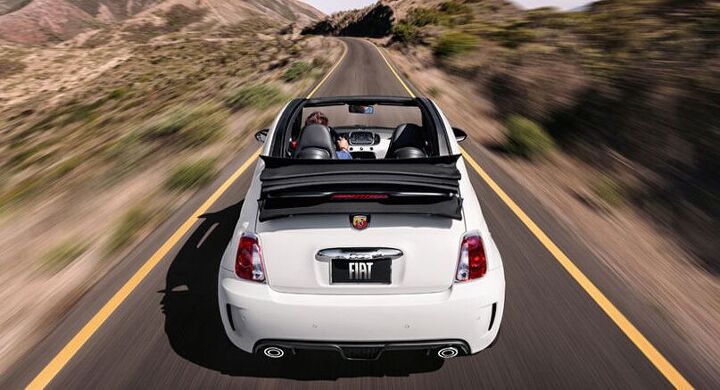



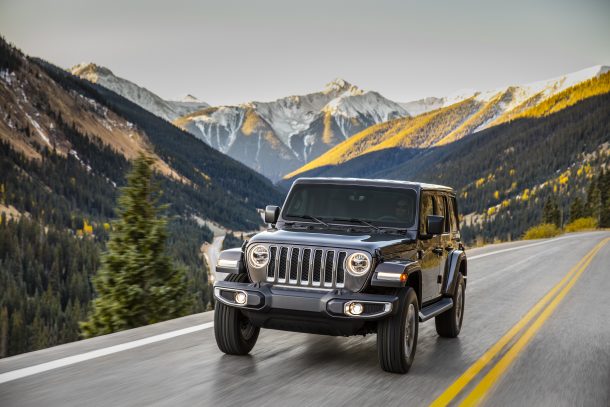

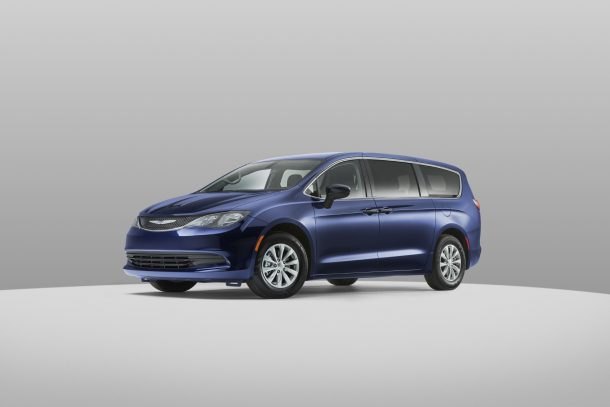
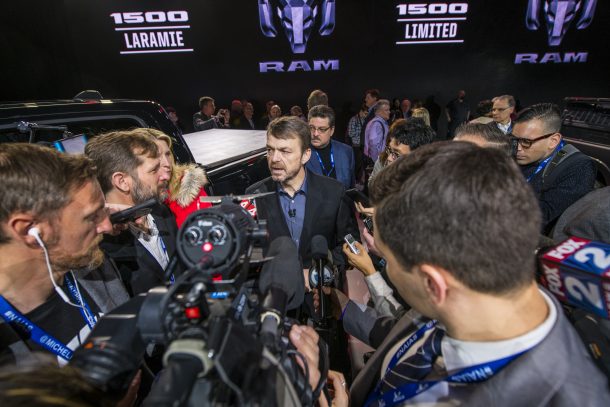
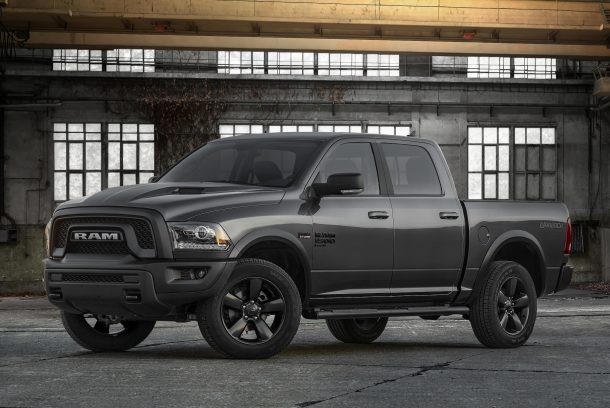


















Recent Comments